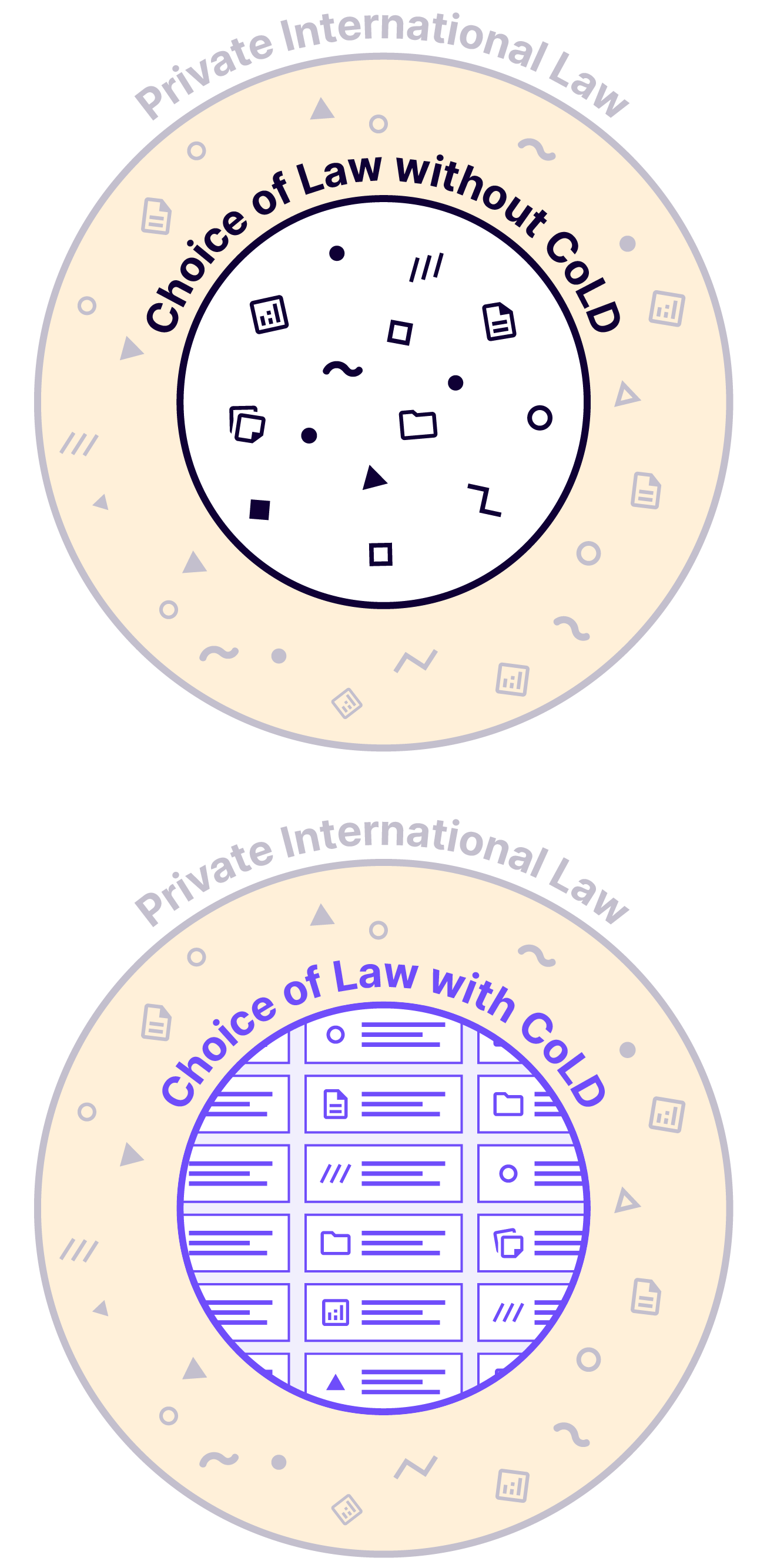What Is CoLD?
Choice of law in international contracts is, as the name suggests, international. But it’s not digital. That is about to change.
The Choice of Law Dataverse (CoLD) is a website that provides private international law data. It contains case law, legislation, research and data analysis from over 60 jurisdictions. If you’re a legal professional or researcher, CoLD will help you solve your private international law problems, no matter where in the world you are located.
CoLD is a joint project of the University of Lucerne, the University of Johannesburg and the Université de Montréal. It is funded by the Swiss National Science Foundation.
Why Does CoLD Exist?
Let’s say two parties from different countries sign an international contract to be performed abroad. If the parties have a dispute, the question will arise as to which law is applicable. The answer to this question is important for the parties because the applicable law will determine their rights and their obligations, especially around the conclusion of the contract. The answer is also important for courts and arbitrators.
Almost all countries allow parties to choose the governing law applicable to international commercial contracts. Countries allow for this freedom of choice to provide legal certainty and predictability. This freedom creates confidence among individuals and thus stimulates trade between countries.
However, there are still many differences in the degree of freedom granted to parties and the limits imposed on their autonomy in different countries. In this regard, the HCCH Principles on Choice of Law in International Commercial Contracts aim to streamline transnational rules on the choice of law for international contracts. They also seek to harmonise how choice of law rules should be applied and interpreted. Yet any conflict of law rule—whether national or international—can only achieve its objective if combined with reliable data. This is where CoLD comes in.
CoLD links the HCCH Principles to jurisdiction-specific legislation, case law and research. By providing up-to-date and accurate information on the content and application of conflict rules in more than 70 jurisdictions, CoLD can also be useful to legal practitioners, whether or not the jurisdiction of interest applies the HCCH Principles. In CoLD, you select your jurisdiction and browse through relevant laws, national precedents, and other information to answer key questions about how to determine the law applicable to your international contract issue.
Who Is Behind CoLD?
We are Daniel Girsberger, Geneviève Saumier, Jan Neels, Eesa Fredericks, Agatha Brandão de Oliveira, Simon Weigold, Fabian Aiolfi, Dominic McMahon, Olga Shpakova and Rorick Tovar. Together we build CoLD. We’re an interdisciplinary and international team dedicated to making private international law accessible to legal scholars and researchers through digital means.
Learn more about our individual roles on our website or follow us on LinkedIn.
Get Involved!
Want to try out CoLD and give us your feedback? You can become a beta user, tell us what you think and help us improve the website. To become a beta user, just reply to this email or send an email to mail@cold.global with the message "Yes, I want to test CoLD" and we’ll get back to you right away!
***
Latest News
Our LexisNexis Practice Note on the HCCH Principles on Choice of Law in International Commercial Contracts has been updated.
The news article “Ten years of the HCCH Principles on Choice of Law in International Commercial Contracts—a decade of legal impact” has been published.
We will present a CoLD subproject at the 5th German Conference for Young Researchers in Private International Law (14–15 February 2025, Heidelberg University). This year’s topic is “Digital transformation and Private International Law: Local connections in boundless spaces”. You can still register for the event.
The HCCH instruments are gaining momentum: Switzerland acceded to the 2005 Choice of Court Convention, joining 36 other states and supranational organisations.




